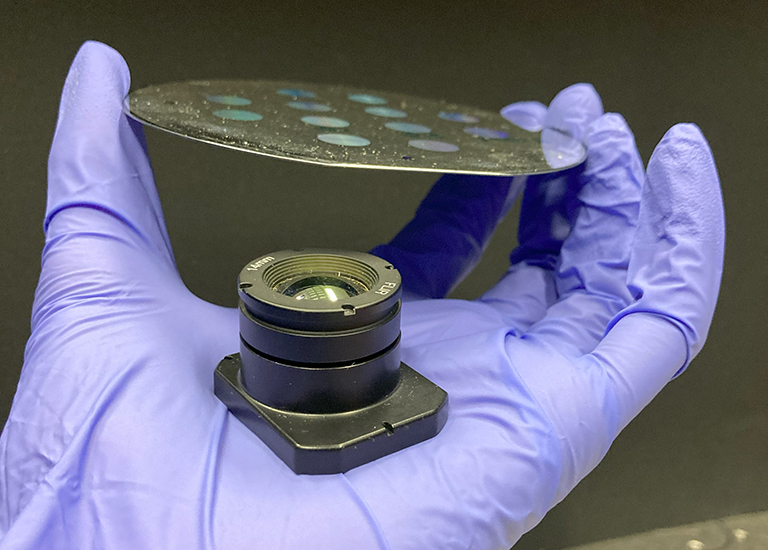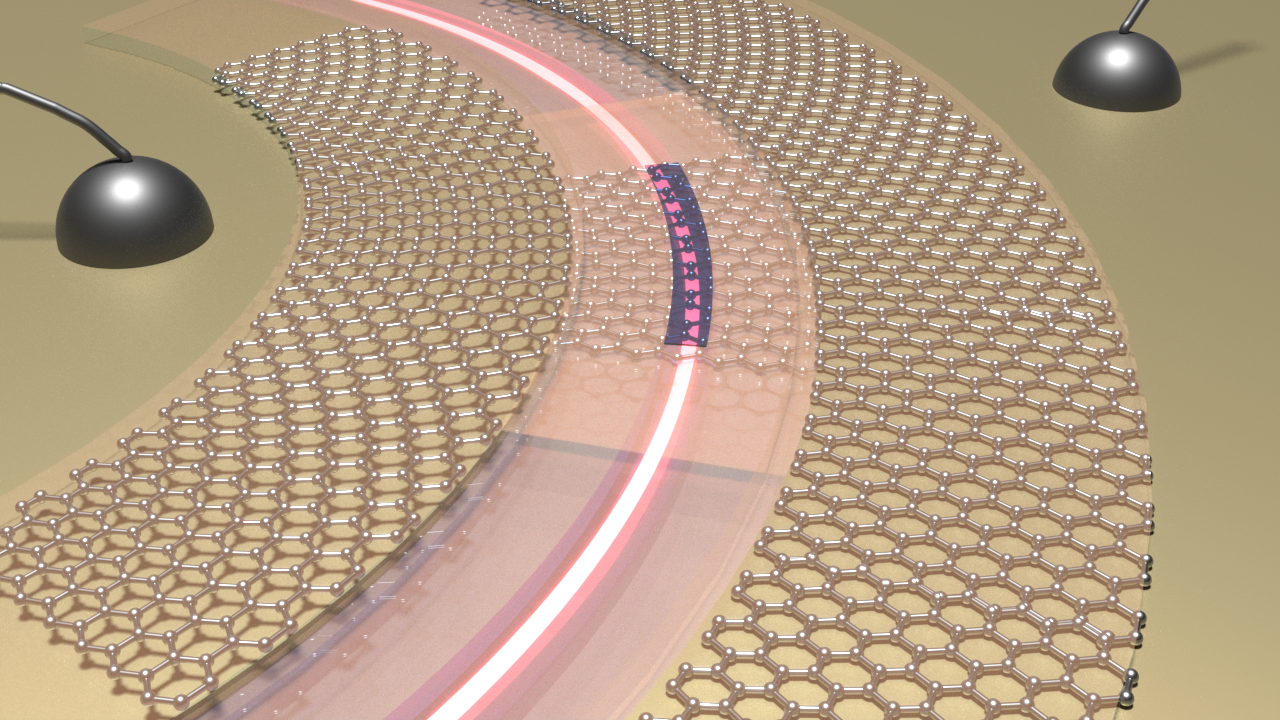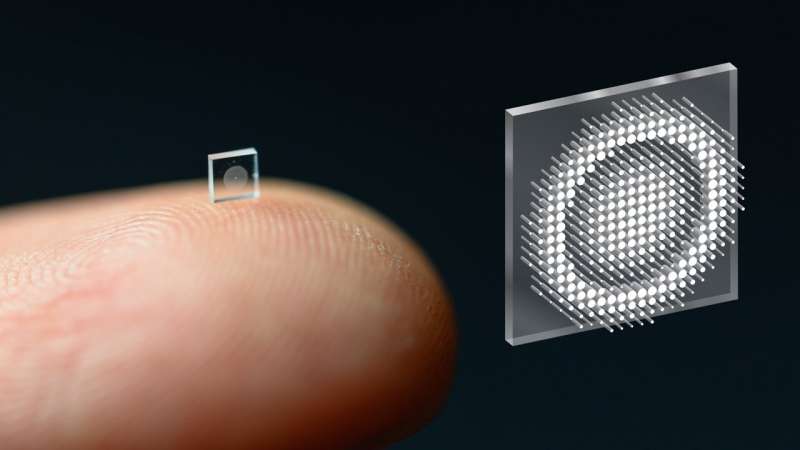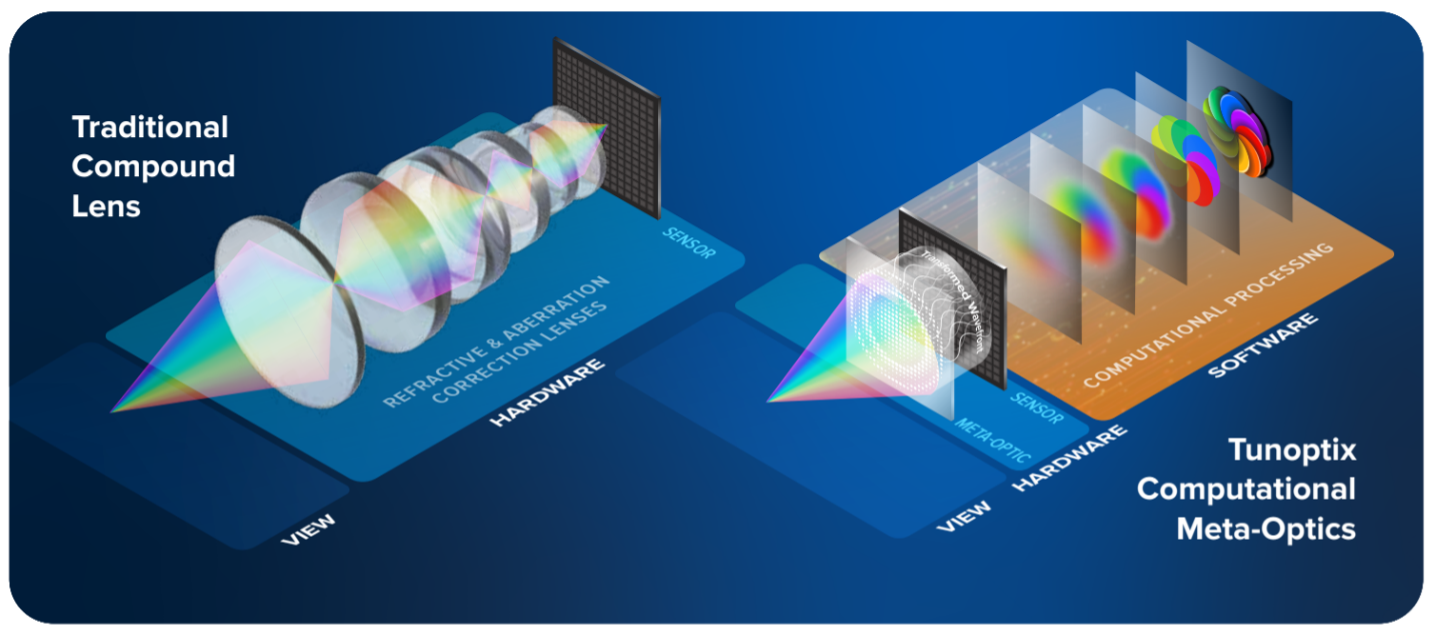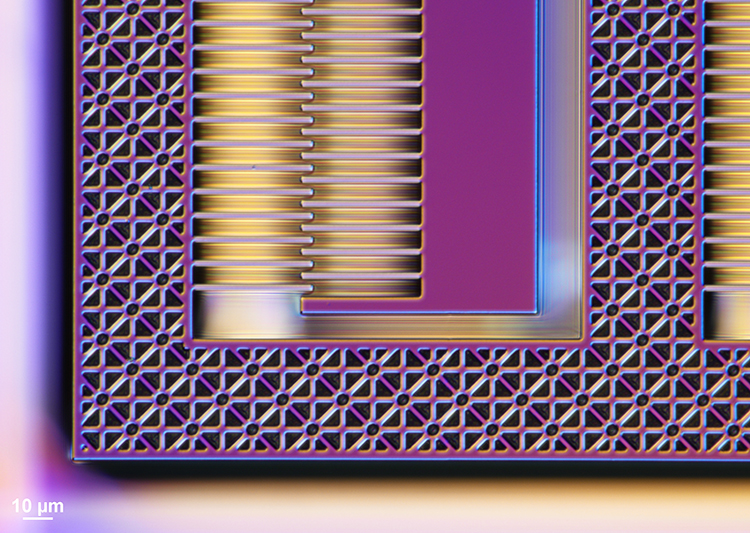August 5, 2024
The University of Washington (UW) Institute of Nano-Engineered Systems (NanoES) awarded Electrical & Computer Engineering Ph.D. student Rui Chen its 2024 Student Achievement Award. Chen was recognized at the NanoES Symposium on May 23.

Nominated by NanoES member and Electrical & Computer Engineering professor Arka Majumdar for his “remarkable productivity and innovation,” Chen has authored 18 journal publications or in-press articles. He was the first author of seven publications, and his work has been featured in prestigious journals such as Nature Nanotechnology, Nature Communications and ACS Nano. He has also amassed over 360 citations.
Chen’s primary research area is nanophotonics, which involves exploring photons, or light, at the nanoscale for a range of applications, including optical communications, miniaturized spectroscopy, optical computing, and more. His focus has been on developing a programmable nanophotonic platform, which is essential for many of these applications.
“This platform’s programmability is enabled by a special type of material called phase-change material, which consumes zero static power once programmed,” said Chen. “With this programmable photonic platform, we anticipate a significant transformation in how people develop new ideas and commercialize products in the photonics field.”
Chen said he became fascinated with how small structures and devices can be beneficial, comparable, or superior to their bulky counterparts.
“After entering this field, I realized how strongly it is related to our lives—all smartphones and laptops have billions of nano-electronic devices,” he said. “That’s the key enabler of our current lifestyle. Moreover, it’s just so cool to think about these tiny structures in the nanoscale.”
According to Mujumdar, Chen’s faculty advisor, Chen has an outstanding research aptitude and enjoys challenging problems.
“From day one in my group, Rui has demonstrated his capability to get things done,” said Majumdar. “He is also very inquisitive and self-critical of his work. In addition to his research accomplishments, Rui has shown a profound commitment to mentoring and guiding over five undergraduate and master’s students in our group.”
Nominations for the next student achievement award will be accepted in spring 2025.
